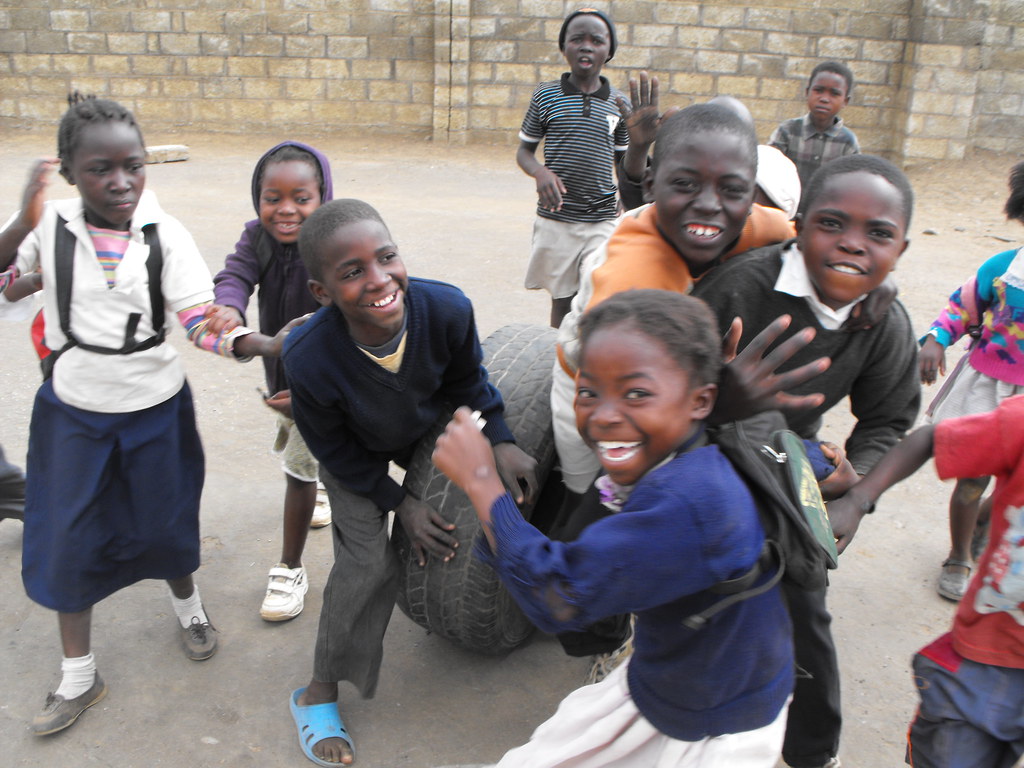The view from the road:

On my first day, I learned where the hundred or so children come from and why they're here. Many of them live in the Misisi compound which lies across a rocky, grassy field nearby. It's an impoverished area, plagued with cholera and other waterborne diseases in the rainy season when it floods. These kids attend school at the Fountain of Hope along with the kids at the shelter and some from Kamwala, too. Some of them reside in Kamwala but can afford to attend schools with better resources, so they stop in after school to play basketball and run around and read in the library. The children who stay at the shelter are mostly "street children" who have been successfully recruited from their rough lifestyles. Several kids, I'm told there are about 7 right now, who can often be found browsing the library, still live on the street and aren't ready to leave for various reasons: their group of friends become their family units, they are afraid to be drafted into the military if they're out in the open at a shelter, they want to continue selling and stealing, etc.
Playing outside:

For nearly everyone here, English is a second language and a general goal for them is becoming better at speaking and reading it. Nyanga, a Zambian language, is most widely spoken. Zambian languages Bemba and Tonga are also common here, and a few speak Lenje, too. Some speak Swahili because they've arrived from Tanzania or Kenya. A Tonga speaker, Emmanuel, gave me a Tonga name, Chipego, meaning "gift", but everyone calls me Holly.
No comments:
Post a Comment